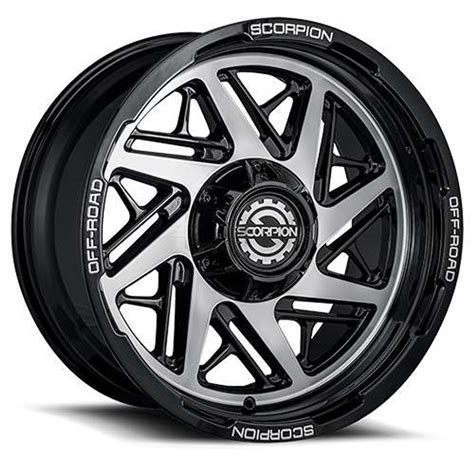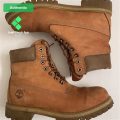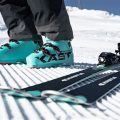Is My Demolition Wheel Original? A Guide to Identifying Authentic Parts
Demolition wheels are crucial components for heavy-duty equipment, ensuring efficient and safe material removal. But with the rise of counterfeit parts, identifying an original demolition wheel can be a challenge. This comprehensive guide will equip you with the knowledge and insights to determine the authenticity of your demolition wheel, ensuring you invest in quality and avoid potential risks.
Whether you’re a seasoned demolition contractor or a first-time buyer, understanding the intricacies of original demolition wheels is crucial for making informed decisions. We’ll cover essential aspects like identifying the manufacturer, inspecting the wheel’s design, and understanding the role of certifications.
How Can I Tell if My Demolition Wheel Is Original?
Determining the authenticity of a demolition wheel requires a careful examination and understanding of its key features. Here’s a step-by-step guide to help you differentiate between original and counterfeit parts:
1. Manufacturer Identification: The first step is to locate the manufacturer’s name or logo. Look for a clearly visible imprint on the wheel itself, typically near the hub or rim. If the branding appears faded, blurry, or inconsistent, it could be a sign of a counterfeit.
2. Wheel Design and Construction: Compare the wheel’s design and construction to known original parts. Look for features like the type of rim, the number and placement of spokes, and the overall profile of the wheel. Any discrepancies or inconsistencies could indicate a non-original part.
3. Material Quality: Genuine demolition wheels are made from high-quality steel alloys, designed to withstand demanding conditions. Inspect the material for any signs of low-quality steel or inconsistencies in the metal’s finish.
4. Certifications and Markings: Original demolition wheels often bear certifications from reputable organizations like CE or ISO, indicating they meet specific safety and quality standards. Look for these certifications on the wheel or accompanying documentation.
5. Serial Number Check: Many original demolition wheels have serial numbers that can be used for verification. Contact the manufacturer or a trusted supplier to confirm the authenticity of the serial number.
6. Purchase From Reputable Sources: Always purchase demolition wheels from authorized dealers or manufacturers. This minimizes the risk of counterfeit products.
7. Expert Inspection: For critical projects or if you have doubts about a particular wheel, consider consulting with an expert in demolition equipment or a qualified inspector.
By following these steps, you can significantly increase your chances of identifying an original demolition wheel. Remember, investing in authentic parts is crucial for ensuring safety, performance, and long-term reliability.
Why is it Important to Use Original Demolition Wheels?
Using original demolition wheels is not just about aesthetics or brand loyalty; it’s about ensuring safety, performance, and longevity for your demolition equipment. Here’s why it matters:
1. Safety: Counterfeit demolition wheels are often made using substandard materials and manufacturing processes, leading to weakened structures and increased risks of failure. These failures can result in accidents, injuries, and potential damage to the equipment.
2. Performance: Original wheels are designed to withstand the demanding stresses of demolition work, delivering optimal performance and efficiency. Counterfeit parts, on the other hand, may not be able to handle the same level of load or impact, leading to premature wear and tear.
3. Longevity: Original demolition wheels are built to last, using durable materials and robust designs. Using counterfeit parts can compromise the lifespan of your equipment, leading to frequent replacements and higher maintenance costs in the long run.
4. Warranty and Support: Original demolition wheels often come with warranties from the manufacturer, providing you with peace of mind and protection against defects. Counterfeit parts rarely offer such guarantees, leaving you vulnerable to unexpected issues.
5. Equipment Compatibility: Original demolition wheels are designed to work seamlessly with your specific equipment model, ensuring proper fit and function. Counterfeit parts may not be compatible, leading to improper installation, potential damage, and reduced performance.
6. Environmental Impact: Counterfeit parts contribute to environmental damage by promoting illegal manufacturing practices and the use of harmful materials. Choosing original parts helps support sustainable and ethical manufacturing practices.
In summary, using original demolition wheels is a crucial investment in safety, performance, and the longevity of your equipment. By prioritizing authenticity, you’re not only protecting yourself and your crew but also contributing to a safer and more sustainable industry.
What are the Signs of a Counterfeit Demolition Wheel?
Counterfeit demolition wheels can be difficult to spot at first glance, but a closer inspection can reveal telltale signs. Here are some key indicators that a demolition wheel may be counterfeit:
1. Poor Quality Branding: The manufacturer’s name or logo on the wheel may be faded, blurry, or inconsistent in appearance. It could also be misspelled or printed in a low-quality font.
2. Rough or Uneven Finish: Counterfeit wheels often have a rough or uneven finish, indicating poor manufacturing processes. The surface may also have visible defects or imperfections.
3. Mismatched Parts: Check for mismatched parts like spokes, hubs, or rims. These components should be identical and properly fitted together.
4. Missing Certifications: Look for certifications from reputable organizations like CE or ISO. Counterfeit parts may lack these certifications or have forged documents.
5. Low Price: Be cautious of demolition wheels that are significantly cheaper than genuine parts. This price difference often reflects the use of low-quality materials and manufacturing shortcuts.
6. Unreliable Seller: If you’re purchasing from an unknown or unreliable seller, be extra wary. Counterfeit parts are often sold through unofficial channels.
7. Suspicious Documentation: Inspect the accompanying documentation for any signs of forgery. Check for authenticity and consistency with the wheel itself.
If you encounter any of these signs, it’s highly likely you’re dealing with a counterfeit demolition wheel. Contact the manufacturer or a trusted supplier to verify the authenticity of the part.
How Can I Avoid Buying Counterfeit Demolition Wheels?
Preventing the purchase of counterfeit demolition wheels requires a proactive approach and a good understanding of the market. Here are some tips for avoiding counterfeit parts:
1. Buy from Reputable Dealers: Always purchase demolition wheels from authorized dealers or manufacturers. Reputable sellers are more likely to carry original parts and provide verification documentation.
2. Research Online Reviews: Check online reviews from other customers to gauge the reputation of the seller and the quality of their products. Look for feedback on the authenticity of parts and customer service.
3. Compare Prices Carefully: Be wary of deals that seem too good to be true. While price can be a factor, always compare prices from multiple sources to ensure they are reasonable and reflective of the quality of the parts.
4. Ask for Documentation: Request documentation and certifications for the demolition wheel, such as the manufacturer’s certificate, CE marking, or ISO certificate. Verify the authenticity of these documents.
5. Inspect the Part Thoroughly: Before making a purchase, inspect the demolition wheel carefully for any signs of poor quality, inconsistencies, or missing markings. Compare it to known original parts if possible.
6. Be Cautious of Online Auctions: While online auctions can be convenient, they also increase the risk of buying counterfeit parts. Be extra vigilant when purchasing demolition wheels from online auctions.
7. Contact the Manufacturer: If you have any doubts about the authenticity of a demolition wheel, contact the manufacturer directly for verification. They can provide information about authorized dealers and verify the serial number of the part.
What are the Risks of Using Counterfeit Demolition Wheels?
Using counterfeit demolition wheels comes with a range of risks that can have serious consequences for individuals, businesses, and the environment. Here’s a breakdown of these potential risks:
1. Safety Hazards: Counterfeit demolition wheels are often made with substandard materials and manufacturing processes, which can lead to structural weaknesses and premature failure. This can cause accidents, injuries, and damage to the equipment.
2. Performance Degradation: Counterfeit parts are not designed to withstand the same stresses and impacts as original demolition wheels. This can result in reduced performance, increased wear and tear, and premature failure of the wheel.
3. Increased Maintenance Costs: Counterfeit demolition wheels often require more frequent maintenance and replacements due to their poor quality. This can lead to higher maintenance costs in the long run.
4. Equipment Damage: Counterfeit wheels can damage your equipment due to their incompatibility or faulty design. This can lead to costly repairs or even the need for complete equipment replacement.
5. Warranty Voidance: Using counterfeit parts can void the warranty on your equipment. This can leave you responsible for repair or replacement costs, even for defects that are not your fault.
6. Legal Consequences: In some cases, purchasing or using counterfeit parts can have legal consequences, including fines or penalties.
7. Environmental Impact: Counterfeit parts often involve illegal manufacturing practices and the use of harmful materials. This can contribute to environmental damage and pollution.
Using counterfeit demolition wheels exposes you to significant risks that can jeopardize your safety, business, and the environment. Always invest in original parts to ensure the best possible performance, reliability, and safety for your demolition operations.
What Can I Do If I Suspect I Have a Counterfeit Demolition Wheel?
If you suspect you have a counterfeit demolition wheel, it’s important to take action to minimize the risks. Here’s a step-by-step approach:
1. Stop Using the Wheel: If you suspect the wheel is counterfeit, do not use it. This will prevent potential accidents or damage to your equipment.
2. Contact the Manufacturer: Reach out to the manufacturer of the demolition wheel to verify its authenticity. They can provide information about authorized dealers and help identify counterfeit parts.
3. Document Evidence: Take photos or videos of the wheel, focusing on any suspicious features, missing markings, or discrepancies. This documentation can be useful if you need to pursue a claim or report the counterfeit.
4. Consider a Replacement: If the wheel is confirmed to be counterfeit, it’s best to replace it with an original part from a reputable dealer. This will ensure the safety and performance of your equipment.
5. Report the Counterfeit: If you purchased the wheel from a specific seller, consider reporting the counterfeit to the authorities or relevant consumer protection agencies. This helps combat the illegal trade in counterfeit parts.
By taking these steps, you can help minimize the risks associated with counterfeit demolition wheels and ensure the safety and reliability of your equipment.
Table Summarizing Information on Original vs. Counterfeit Demolition Wheels
Here’s a table summarizing the key differences between original and counterfeit demolition wheels:
| Feature | Original Demolition Wheel | Counterfeit Demolition Wheel |
|---|---|---|
| Manufacturer Branding | Clear, legible, and consistent branding | Faded, blurry, or inconsistent branding |
| Design and Construction | Precise design and robust construction | Inconsistencies in design, potential mismatched parts |
| Material Quality | High-quality steel alloys | Substandard materials, potential signs of weak metal |
| Certifications and Markings | Bears certifications from reputable organizations | May lack certifications or have forged documents |
| Price | Competitive pricing, reflecting quality | Significantly lower price, indicating poor quality |
| Warranty | Often comes with a manufacturer’s warranty | Rarely offers warranties |
| Seller Reputation | Purchased from authorized dealers or manufacturers | May be sold through unreliable sources |
| Overall Quality | Durable, reliable, and safe | Potentially hazardous, prone to failure |
FAQ about Original Demolition Wheels
What are the common types of demolition wheels?
Demolition wheels are classified by their type and purpose, each designed for specific demolition tasks. Common types include:
- Concrete demolition wheels: These wheels are specifically designed for breaking and crushing concrete. They feature strong teeth and a durable construction to handle the tough nature of concrete.
- Asbestos demolition wheels: Designed to safely remove asbestos-containing materials, these wheels feature a special design and material composition to minimize dust and fiber release.
- Brick demolition wheels: These wheels are optimized for removing brick and masonry, often incorporating diamond segments or carbide tips for efficient cutting and breaking.
- Steel demolition wheels: Designed to cut through steel and other metal structures, these wheels feature high-speed cutting capabilities and robust construction to withstand the demands of steel demolition.
What are the benefits of using original demolition wheels?
Original demolition wheels offer several advantages over counterfeit parts, including:
- Enhanced Safety: Original wheels are made with high-quality materials and designed for safe operation, reducing the risk of accidents or injuries.
- Improved Performance: Original wheels deliver optimal cutting and breaking power, leading to increased efficiency and productivity.
- Extended Lifespan: Original wheels are built to last, offering longer service life and reducing the need for frequent replacements.
- Warranty Coverage: Original wheels often come with a manufacturer’s warranty, providing peace of mind and protection against defects.
- Reduced Maintenance Costs: Original wheels require less frequent maintenance and replacement, saving on long-term operating costs.
Can I use a regular wheel on my demolition equipment?
Using a regular wheel on demolition equipment is generally not recommended. Regular wheels are not designed for the demanding applications of demolition work and can quickly wear out or fail, leading to safety hazards and equipment damage.
How often should I replace my demolition wheels?
The frequency of demolition wheel replacement depends on factors like the type of demolition work, the intensity of use, and the quality of the wheels. However, a general guideline is to inspect wheels regularly for signs of wear and tear, such as chipped teeth, cracks, or excessive wear on the cutting surface. Replace wheels when they exhibit significant wear or damage to ensure continued safety and optimal performance.
Where can I find information about specific demolition wheel models?
You can find detailed information about specific demolition wheel models on the manufacturer’s website or in their product catalogs. These resources often provide specifications, performance data, and safety guidelines for each model.
What are the latest trends in demolition wheel technology?
The demolition wheel industry is constantly evolving, with new technologies emerging to improve performance and safety. Some recent trends include:
- Advanced Cutting Materials: The use of innovative materials like diamond segments, carbide tips, and tungsten carbide inserts enhances cutting efficiency and lifespan.
- Optimized Wheel Profiles: Wheel profiles are being refined to provide improved cutting action and reduced vibration for greater operator comfort and safety.
- Smart Wheel Systems: Some wheels are incorporating sensors and data analytics to monitor wheel performance and provide real-time information to operators.



